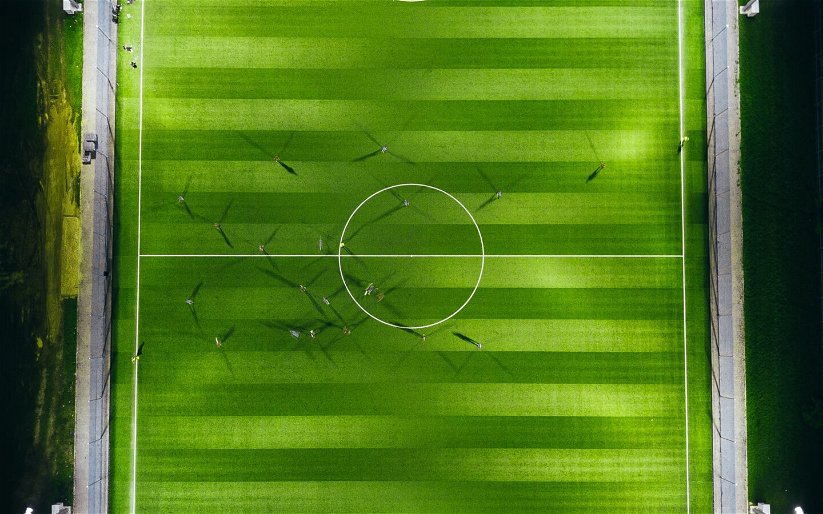With the African Cup of Nations drawing to a close, Queens Park Rangers fan Tom Dudley prepares for Sunday’s final between Cameroon v Egypt.
In the meantime, the budding journalist sends Vital QPR his latest report.
The African Effect
Another year, another African Cup of Nations and another scrap between countries and clubs over the release of key players.
Whilst Arsene Wenger has been relatively quiet this year, maybe because he’s finally worked out that the African nations is a problem he has to get around and not get rid of, Avram Grant and Harry Redknapp have taken up the mantle instead.
There is no doubt that the African Nations has a profound effect on the top English league. African players aren’t luxuries anymore.
Many make up the backbone of teams, teams fighting for the title, for Europe and against relegation. Managers are going to have to start realising that whilst African football is having a hugely positive influence throughout the English leagues, with the good comes the bad. For one month out of 24 Africa has to get its reward.
Let’s get one thing straight here, I’m quite young on the journalism circuit and if you’d of asked me two years ago about how best to avoid the constant problem of the African Cup of Nations, I would of said ‘easy, just move it.’ One day spent at a Cup of Nations match and it’s easy to see how naïve this solution is.
The problem is two fold. In a practical sense it couldn’t work. Whilst English football prides itself on Sunday pub football, slogging away in the rain and the mud in mid January, African football is built on entertainment. Moving the tournament to our summer, their rainy season is ludicrous.
For a start, their rain is slightly different to our consistent drizzle. Storm’s would cause waterlogged pitches, less fans and worse football, three things the African football associations can not afford.
I assume for every one of these problems there is a solution but secondly, why should they have to move their showcase tournament to fit in with us?
The African Cup of Nations pre-dates both the European and South American versions and most Europeans don’t understand quite how large the tournament is becoming.
As Junior Agogo stated before the semi-final loss to Cameroon…
‘football is everything here in Africa.’
Whilst most of Europe get to see their stars day in day out, through the TV, magazines, newspapers and live, this is the only opportunity most African’s get, and it’s once every two years.
This is their opportunity to get away from the struggles of life, from serious problems that they spend every day overcoming.
Whether it’s the three weeks or just one 90-minute match, they can see their heroes live, watch them parade their talents and provide a glimpse of the possibilities the world contains, offering them some hope. Most of all, they can party like they don`t have a care in the world.
Spend just a day here and any notion of moving the games, becomes a non-idea. It’s just a problem Messieurs Grant, Wenger and Redknapp are going to have to deal with.
…and let’s be honest. It’s a small price to pay. African’s are changing the landscape of English football rapidly. In the 90’s it was considered a luxury to have a player such as Finidi George, Jay-Jay Okocha, Tony Yeboah or George Weah. They dazzled and delighted, but few clubs can claim that they were vital to their plans.
Now, African players are the heartbeat of many European teams. Name the Premier leagues two top scorers last year? Didier Drogba and Benni McCarthy. Take the likes of Ronaldo, Keane and Torres out of the picture this term and who are you left with Benjani and Adebayor.
Who did Fabio Capello spend most of his money on when given a hefty transfer kitty two summers ago? Mahamadou Diarra. Not only that but he was vital to breaking the Barcelona strangle hold and provide Real Madrid with a league title.
African football has changed dramatically. They have added resilience, strength and technique to their already overwhelming skills.
African players are now the finished article, the complete footballer. Hence, the millions of pounds spent on the likes of Diarra, Essien and Drogba. These players are the backbone of their teams. Would Chelsea of won the league without Drogba, Barcelona without Eto’o, Madrid without Diarra?
There is no doubt that African football has seriously changed the face of European football, for mostly the good and for one month every other year, the bad (if you ask Avram Grant). Nevertheless, this year’s tournament has seen more than ever, the effect of Europe on African football.
Marcel Desailly calls it the ‘Europeanisation of African football,’ due to the hundreds of scouts that trawl the African leagues looking for the next Eto’o.
Once they have found these kids, they are shipped off too Belgium to get European passports. It means the likes of Essien and Drogba have not learnt their football is Africa, but in Europe.
Players such as Alex Song, have learnt the Wenger way and has become vital to Cameroon making the Cup final. But he is no trickster. His game is based on resilience and effort, not on skill. Desailly believes that…
‘We have lost something. You once had African players who wanted to run with the ball and enjoy themselves. Now there is a more European style, less creativity, less fantasy.’
Desailly has a point. The teams of this African Cup of Nations are built around a holding, defensive midfield, not a creative one. Yaya Toure and Zakora for Ivory Coast, Muntari and Essien for Ghana, Song for Cameroon and Hosny for Egypt; all four semi-finalists.
Despite this, Desailly’s verdict is slightly exaggerated. Whilst these players have been the lynchpins for their teams, it has been the likes of Zidan, Keita, Eto`o, Agogo, Manucho and Feindouno that have lit up this tournament.
All is not lost. The goals per game ratio has been astonishing and the two teams that have scored the most goals have reached the final.
Evidence also shows, you cannot simply implant European styles into African players. Ajax, renowned for their youth development, tried to do this in South Africa through their sister team Ajax Cape Town. The team has not yielded a single player. It will be decades before African football is totally transformed into what we see in Europe.
Besides, whilst the football is changing, slowly, other areas are not. This has been declared as the most organised African Cup of Nations to date but problems have cropped up around every corner, whether its floodlight failure, poor accommodation or terrible training facilities.
The officiating of games has been generally atrocious and the standard of Goalkeeping still isn’t up to scratch. These are just a few of the things that makes African football what it is and it will be a while before Europe takes the African soul, even if it’s taken the body and the mind.
Many thanks go out to Tom for another cracking exclusive report.
Thoughts On African Cup

Share this article
